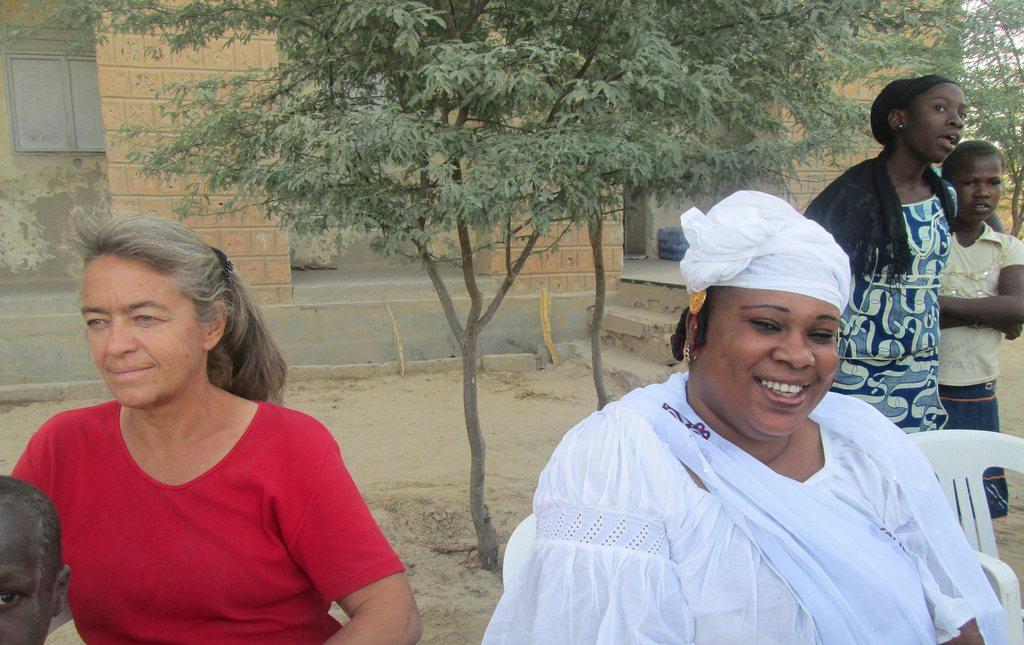The Swiss woman who was kidnapped in Mali – twice

Beatrice Stöckli will not be deterred. The Basel native settled in Mali some 15 years ago, was kidnapped in 2012 – and then returned to the country, only to be taken again earlier this month. Who is this woman who has landed in the hands of Islamists not once, but twice?
“I can’t talk about it, I’m really in shock,” Stöckli* told the media back in 2012, after her kidnappers, the jihadist group Ansar Dine, let her go following nine days in captivity. She called her mother from the rescue helicopter but didn’t make any promises about coming home, according to statements her mother made to Swiss public television, SRF, at the timeExternal link. A short time later Stöckli was back in Timbuktu, living in the same community and working with the same children.
Then, earlier this month, on the night of January 7, armed men “knocked on [her] door, she opened, and they left with her”, according to a report from Agence France-Presse.
This week, media outlets widely reported that she appears as having been kidnapped in a video released by al-Qaeda in the Islamic Maghreb.
Andrea Vogel met Stöckli, who is now in her mid-fifties, at the local market during a 2008 expedition to cross the Timbuktu-Marrakesh caravan route. He heard her speaking Swiss German, approached her, and was invited to her home for tea.
“She lived very simply, in a half-empty one-room house with a tiny terrace and garden in front,” the photographer and expedition leader told swissinfo.ch. “She shared what she had with the [local] children.”

Vogel said that Stöckli was also well networked in the local community, introducing him to leaders like the commissary of Timbuktu who helped him carry out research and plan his trip.
Early missionary work
Stöckli began her work in Africa by responding to an advertisement placed by Jörn André in 2002, according to SRF. As of 2012, André was an Evangelical Christian pastor leading a Germany-based missionary group called Neues Leben Ghana, or “New Life Ghana”. He told SRF that Stöckli had travelled to Mali with his group and worked with them in Timbuktu for a few years.
“She knew how to explain the gospel to people very easily, also to children,” he said. “Not everyone can do that.”
Eventually, Stöckli set off on her own due to “disagreements” between her and André’s group, he added. In 2012, André said that New Life Ghana had stopped going on missions to Mali for security reasons.
Stöckli settled in Timbuktu, where Vogel says she “took care of children in the neighbourhoods on the edge of the city. She told them stories, played with them, made them tea”. Her mother told SRF that her daughter received financial support from family and friends in Basel.
“She did try to bring the children closer to God in a Christian sense, and that’s where the problems started,” Vogel believes, pointing out that certain groups and leaders in Islamic Mali likely didn’t appreciate those actions.

Not black and white
Still, having seen how embedded she is in Timbuktu, Vogel told swissinfo.ch that he can understand, to a certain extent, why Stöckli returned after the first kidnapping despite having been warned not to go back by her captors and by the Swiss authorities.
“That was her work, Timbuktu became her home,” he said, describing her as a peaceful and happy person who was maybe a bit aloof to the situation unfolding in the country.
“You might go back if you believed so strongly that it’s your job to help people, and it seems that’s what happened here,” he added.
Video released
No group immediately claimed responsibility for Stöckli’s latest kidnapping. However, in the recently released video, masked Islamic fighters accuse Stöckli of “attempting to Christianise Muslims” and demand the release of members imprisoned by the Malian government. They also call for the release of Ahmad al-Faqi al-Mahdi, who is in the custody of the International Criminal Court.
A woman appearing to be Stöckli speaks in the video, her face visible beneath a black veil that covers her hair and body. The Swiss foreign ministry has not confirmed the authenticity of the video. It has created a task force to address Stöckli’s latest kidnapping and is in contact with local authorities in Mali.
Vogel says he saw the video and “knew her right away”. He provided swissinfo.ch with the last phone number he had for Stöckli, but the line seems to have been disconnected.
“It’s a horrible situation,” he said. “I wouldn’t want to be in her shoes.”
*spelled “Stockly” in some media reports

In compliance with the JTI standards
More: SWI swissinfo.ch certified by the Journalism Trust Initiative










You can find an overview of ongoing debates with our journalists here . Please join us!
If you want to start a conversation about a topic raised in this article or want to report factual errors, email us at english@swissinfo.ch.